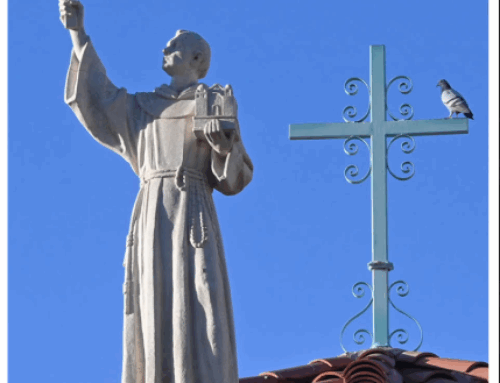(This article originally appeared in the TAU-USA Spring/Summer Issue #103)
By Bret Thoman, OFS
Anyone who has spent much time visiting different Franciscan fraternities is aware that there are different ways of understanding how to live out our Franciscan life.
On the one hand, there are those whose focus is “other-worldly.” They value correct liturgy and worship, morality, virtue, and doctrine. In prayer, they tend to be highly reverent, they value traditional rites, they are partial to mystery and wonder. They are deferential to religious authorities to whom they look to clarify Church teachings and quell disputes.
On the other hand, there are those whose focus is on this life and this world. They dedicate their time, resources, and energy to social issues and injustices. They are concerned with peace, racism, the marginalized, and ecology. In issues of faith and morals, they believe in the primacy of the conscience. Their liturgies tend to be more casual, oriented toward the community, with a high amount of lay participation.
On the surface, it would appear that these groups could be labeled as either conservative or liberal, traditionalists or progressives.
Instead, there are better words to describe them: “transcendent” and “immanent.”
Transcendence focuses on the otherness of God. It emphasizes God’s existence outside of the world, before creation and beyond humanity. It is the belief that God surpasses the physical world and is independent of it. God transcends the material world, indeed the entire universe and is, therefore, beyond the grasp of the human mind.
On the other hand, immanence focuses on the incarnate Christ who revealed himself “down here” – in the world with humanity. In this seemingly contrasting view of God, God reaches down – stoops down – from heaven to be with mankind. God does not remain aloof up in the heavens, he is down here with us.
The question is whether Christ came to save humanity and bring man up to heaven (transcendent)? Or did Christ lower himself to be with humanity where man is (immanent)?
Which side is right? In fact, both reflect the nature of God.
As Catholic Christians, and as Franciscans, we accept by faith that God is almighty, holy, and cannot be approached or seen. The God in whom we believe existed before the creation of the world and is distinct and fully independent of the material world.
Yet that same God – the Word, Second Person of the Holy Trinity who existed before all creation and through which all creation was created – came down and became man. He became incarnate as the God-man, Jesus the Christ. “For your sake he became poor although he was rich, so that by his poverty you might become rich” (2 Cor 8:9).
So transcendence and immanence are really one and the same: the transcendent and immanent nature of God meet in the mysterious revelation that Christ is both God and man. It is paradoxically Christ himself, both fully divine and fully human, who unites transcendent divinity and the immanent humanity. God is both transcendent and immanent. “Love and truth will meet; justice and peace will kiss” (Psalm 85:10).
In this, we can draw on the example of St. Francis of Assisi, who bridged the seemingly insurmountable divide of transcendence and immanence through his rightful worship of God and his dedication to love of neighbor.
St. Bonaventure wrote:
It was a custom for the angelic man Francis never to rest from the good, rather, like the heavenly spirits on Jacob’s ladder, he either ascended into God or descended to his neighbor. For he had so prudently learned to divide the time given to him for merit, that he spent some of it working for his neighbor’s benefit and dedicated the rest to the tranquil excesses of contemplation. (St. Bonaventure, Major Legend, Chapter XIII, 1)


Hi, I was following your blessed site on Facebook but I am not using Facebook now. My husband is undergoing a bone marrow transplant and I found your site the only peace in my life. I belong to a wonderful Tau family in my parish but had to leave because of my husband’s illness. I am blessed by their support, prayers and kindness. True to St Francis and St Claire. I was also was going to begin to see if I was worthy of becoming a Secular Fransicians and start my journey.
So emails my dear brothers would help so much spiritually for me especially now
May Our Lord blessed and hold with love in the palm of His Hand